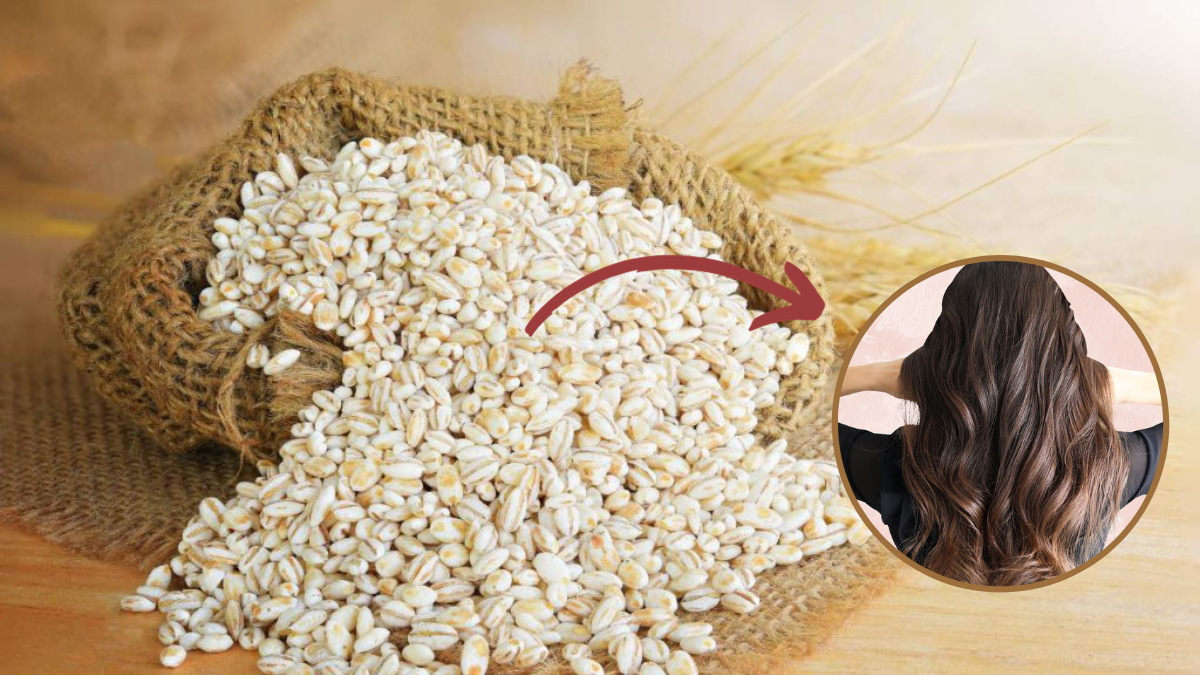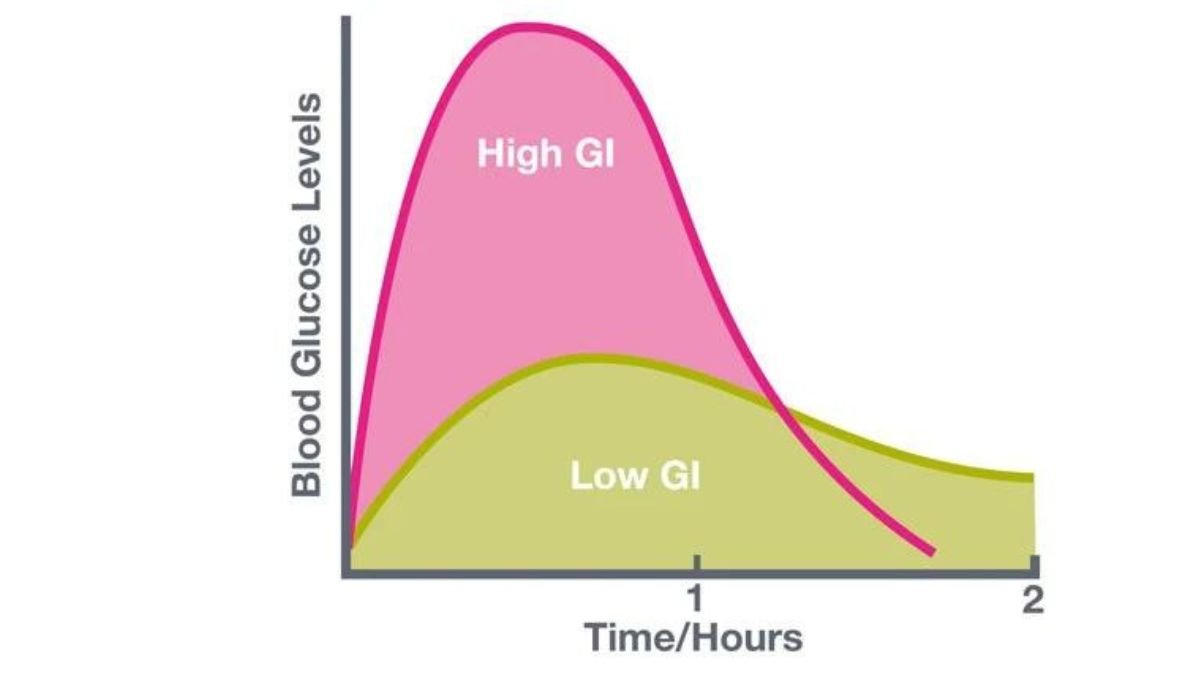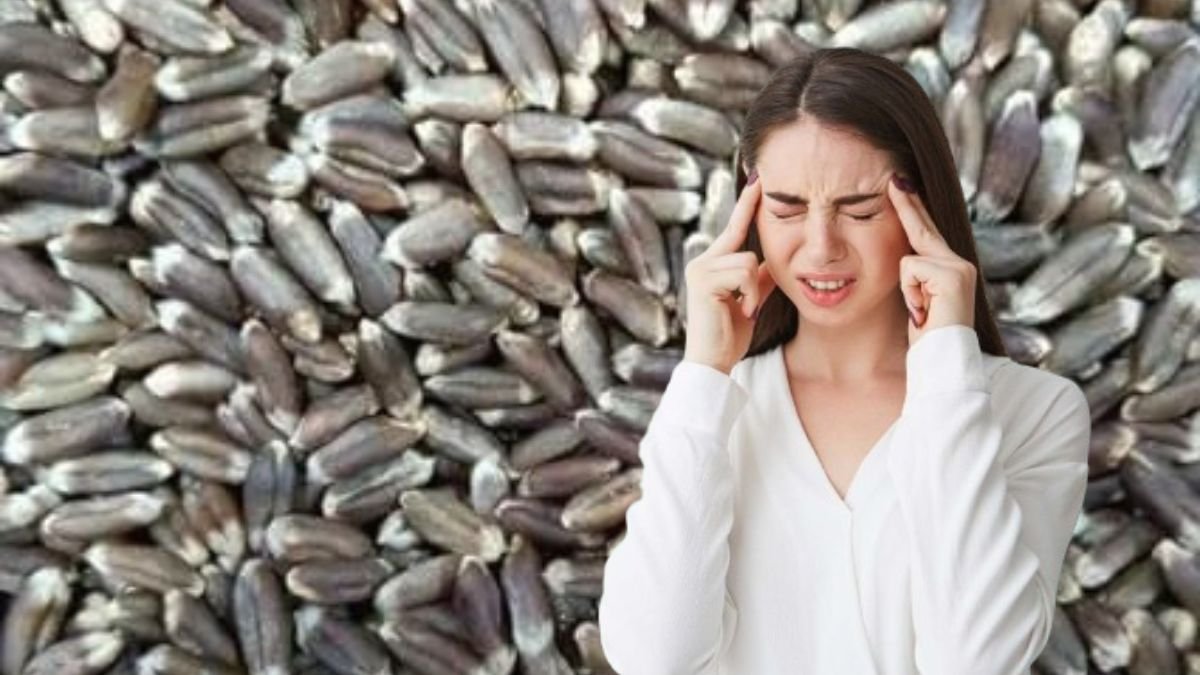Barley flour is rich in nutrients that provide many benefits for hair health. Some of the benefits of using barley flour for hair are as follows:
- Strengthens hair: The rich amount of vitamins in barley flour, especially B vitamins like niacin (vitamin B3) promotes strong hair by stimulating blood circulation in the scalp. It helps nourish hair follicles, potentially reducing hair breakage and encouraging healthy growth.
- Scalp nourishment: Barley flour contains minerals like iron and copper, which are important for keeping the scalp healthy. These minerals contribute to better oxygenation and circulation, providing essential nourishment to the hair roots.
- MOISTURE AND CONDITION: Barley flour has moisturizing properties that can help deal with dryness of the scalp and hair. It helps retain moisture, prevent scalp dryness and reduce problems like dandruff or flaking.
- Adds volume and shine: Regular use of barley flour as a hair mask or treatment can enhance hair texture, add volume and shine to dull or lifeless hair, making it look healthy and shiny.
- Antioxidant Protection: The antioxidants present in barley flour protect hair from environmental damage caused by free radicals. This protection helps maintain the health and integrity of the hair, preventing damage and breakage.
Ways to Use Barley Flour for Hair:
Barley flour hair mask: Make a hair mask by mixing barley flour with water or other natural ingredients like yogurt or coconut oil. Apply this mask to wet hair, leave it for 20-30 minutes, then wash thoroughly.
Barley flour rinse: Prepare barley flour rinse by mixing barley flour with water to make a smooth paste. Apply it to your hair after shampooing, leave on for a few minutes, then rinse out for nourished and conditioned hair.

Chat Now Gehuwala- Click Here
Barley Flour for Hair FAQ
1. How does barley flour benefit hair health?
Barley flour is rich in nutrients like vitamins (especially B vitamins like niacin), minerals (iron, copper) and antioxidants that can strengthen hair, nourish the scalp, promote hair growth. Can and bring shine to the hair.
2. Can barley flour help with hair growth?
Yes, barley flour contains niacin (vitamin B3), which promotes blood circulation in the scalp, aiding hair growth by nourishing the hair follicles and potentially reducing hair breakage.
3. How can I use barley flour for hair care?
You can use barley flour as a hair mask by mixing it with water or other natural ingredients like yogurt or coconut oil. Apply the mixture to wet hair, leave for 20-30 minutes, then rinse thoroughly. It can also be used as a rinse after shampooing.
4. Does barley flour help with scalp issues like dandruff?
The moisturizing properties of barley flour can aid in scalp hydration, potentially reducing dryness and addressing problems like dandruff. It nourishes the scalp and can reduce flakiness.
5. Can barley flour add volume to hair?
Yes, regular use of barley flour as a hair treatment can improve hair texture, potentially add density and shine to hair, and provide a healthy look.
6. Is there a risk of allergic reactions when using barley flour on hair?
Some individuals may be sensitive or allergic to barley. It is recommended to do a patch test before applying barley flour on the scalp or hair to check for any adverse reactions.
7. How frequently can I use barley flour for my hair?
Using barley flour as a hair mask or treatment once a week or once every two weeks may be beneficial. However, different hair types may react differently, so it is worth monitoring how your hair reacts.
8. Can barley flour help prevent hair breakage?
The nutrients and moisturizing properties of barley flour can strengthen hair, potentially reduce hair breakage and improve overall hair health.
9. Are there specific precautions to take when using barley flour for hair care?
Make sure you rinse the barley flour out of your hair thoroughly to prevent residue from building up. If you feel any irritation or discomfort, discontinue use and consult a dermatologist or hair care professional.




